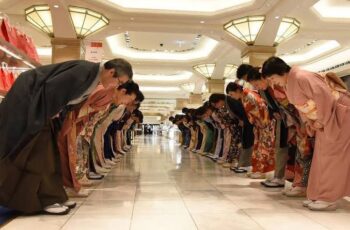Japan is a unique country with a distinct culture, climate and a rich tapestry of unwritten rules and traditions. And while many of these will be foreign to travelers visiting for a short time, there are some clues that you need to know so you don’t get into a sticky situation while having the trip of a lifetime. After living in Japan for many years, here is what I wish that I knew before coming to Japan.
Number one, carry cash at all times. This felt very strange to me at first. Coming from a country where I wouldn’t feel comfortable carrying more than $100 for fear of losing it or getting mugged, I now feel uncomfortable going anywhere in Japan with less than ¥30,000. In fact, most Japanese will carry ¥50,000 to ¥100,000, or $372 to $745 USD at any given time.
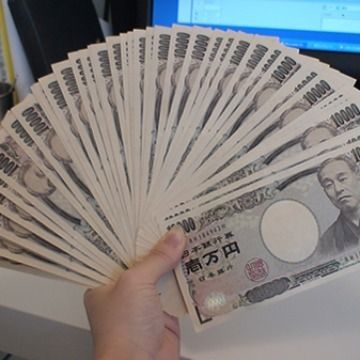
Japan is a safe country. And while that doesn’t mean you shouldn’t be careful, carrying any less than ¥30,000 to ¥50,000 could result in you wasting your valuable travel time searching for an ATM, as many establishments will only accept cash. Japan is adopting more credit card and smart pay options, but outside of major cities, these are few and far between And while talking about cash, that brings us to unspoken rule
Number two: don’t hand money to people. Money is rarely passed directly from hand to hand in Japan. When paying, you will often see a small tray unless you are paying by an automated machine. So place your money on that tray and you should receive your change and receipt on the same tray.
There will be some situations where this is not the case. However, if you cannot see this tray, then handing money to the cashier or putting it on the counter is fine. Also, I have noticed that in some more friendly regions of Japan, such as Kansai’s Osaka, the cashiers will often hand your change to you personally, provided you are a foreigner or it is somewhere more convenient to do so, like in a taxi. And speaking of taxis,
Number three: don’t open or close doors when using taxis in Japan. In the past, Japan’s taxis were smaller and the drivers would open the door for passengers as a sign of respect. But as cars became larger and streets busier, a solution was needed for the rapidly developing country.
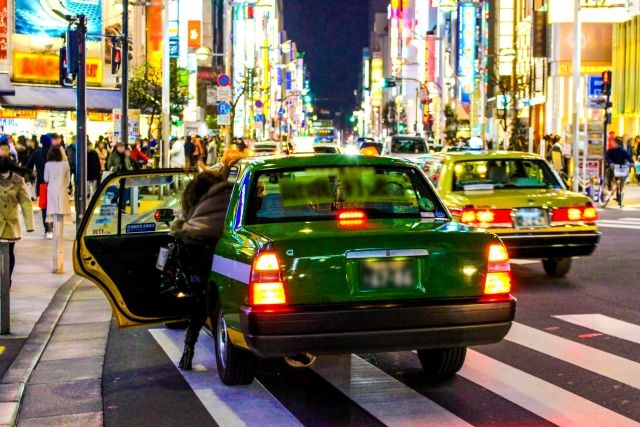
In 1964, when Tokyo was hosting the Olympic Games, a solution was found: the automatic car door. It might feel strange for you to not close the door after you, but if you do so, then the door may not close correctly and the driver may be unsure if it’s safe to proceed. So enjoy this feature and don’t inconvenience your driver—just don’t open and close the doors.
The only exception to this is the front seat, which might not always be automatic because it’s typical for Japanese to only sit in the back seat of a taxi unless traveling with a large party. However, I also don’t actually recommend that you use the taxis in Japan unless you have no other option.
Taxi services in Japan are by far the most expensive form of travel. A trip from Narita Airport to Shinjuku in the heart of Tokyo will cost upwards of ¥28,500 or $212. And now you might see why my first tip was to carry cash on you at all times in Japan for just such an emergency. Trains and buses are a fraction of the price, and unfortunately Japan has no real form of ridesharing due to taxi lobbyists.
Using Uber in Japan will just summon a normal taxi to your location with the normal price.
Number four, the language barrier. A common concern for any traveler is: will you be able to communicate and find your way while traveling in Japan? Fortunately, you don’t really need to worry here. In an effort to increase international tourism, Japan has updated nearly every directional sign with both English and Japanese, combined with modern apps for navigation and translation.
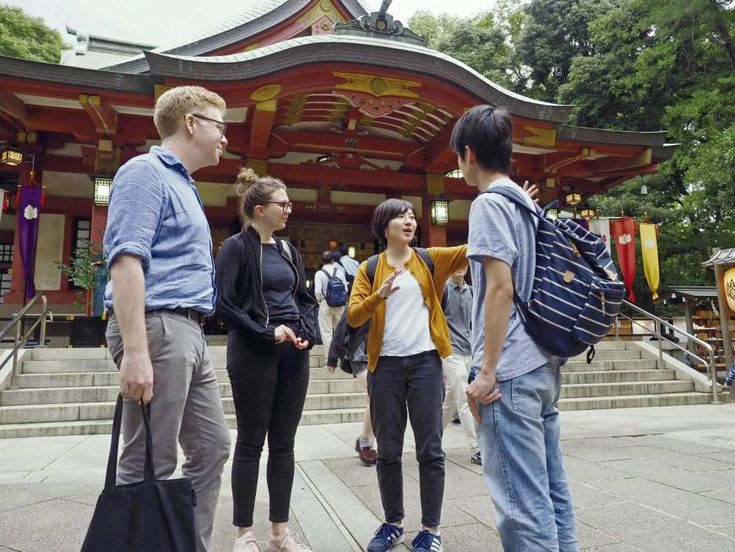
It is quite possible to travel and even live in Japan without knowing the language. That said, there are a few phrases that are incredibly helpful and only take a few minutes to learn. “Sumimasen” will be the most useful word you’ll ever learn. You can use it to say sorry, excuse me, or get someone’s attention. For example, if you are at a restaurant and want to order something, stick your hand up and say “Sumimasen” to get the waiter’s attention.
This might feel a little awkward at first, depending on your culture, but this is how the locals do it. Almost everyone will have heard the phrase “Arigato” which means thank you, but you can make this more polite by saying “Arigato gozaimasu.” “Hai” means yes in Japan, and while “ie” is taught as no, it can sound a little harsh.
Instead, you can say “daijoubu” which means it’s okay, and can also be used for no instead. Such as if someone handed you something, you could say “daijoubu,” which means it’s okay, I don’t want it. A couple of phrases that are useful: “Eigo wakarimasu ka?” – Do you speak English? “Doko desu ka?” – Where is… For example, “Toire wa doko desu ka?” – Where is the toilet?
“Toire” is one of Japan’s many loanwords, and that is a secret tip to communicating in Japan. If you find yourself in a tricky situation, you can attempt to elongate a word to see if it makes sense in Japanese. For example, credit card becomes “kurejitto kaado.” “Kurejitto kaado daijoubu desu ka?” – Is credit card OK?
Starbucks would become “Sutābakkusu.” “Sutābakkusu doko desu ka?” – Where is the Starbucks?
Number five: when not to travel. Japan has four beautifully distinct seasons, each with unique experiences for anyone’s travels. But there are two times in the year that I just don’t recommend visiting Japan. And that’s Golden Week and the Obon season. Golden Week happens in spring from April 29th to May 5th and is made up of four national holidays: Showa Day, Constitution Day, Greenery Day (not that one), and Children’s Day.
Depending on how these fall during the year, they can be anywhere from a couple of days off to a full week or even a nine-day vacation for workers taking two paid days off, making it the busiest time in the year for people getting away from work.
Roads are crowded, trains are packed, and hotel prices skyrocket as the nation collectively lets off steam from the year. The summer festival Obon is a similar situation, although people will typically visit their relatives during this time. Its exact dates change every year with the lunar calendar, but it is roughly around mid-August. Summer is also my least recommended season.
As much as I love the hot weather, temperatures routinely exceed over 36 degrees or around 97 degrees Fahrenheit, with 100% humidity. This oppressive heat carries a real risk of heat stroke if you’re carrying bags around or visiting many tourist destinations while traveling. And anyone that is not used to this type of climate should rethink travel during this time.
This isn’t the only inconvenience to traveling during Japan’s national holidays. Depending on your location, bank ATMs can even shut down during the holidays as well—because they need a vacation too, apparently. My own bank actually does this, but it shouldn’t be a problem at convenience stores. It’s worth keeping in mind, however, and another reason why carrying cash with you in Japan is so important.
With that all said, there are a couple of benefits to traveling during Golden Week and the Obon season, as this is the time of year you can see carp streamers called “Koinobori” flying for Children’s Day or the beautiful summer lanterns honoring ancestors during Obon.
Number six: don’t forget a towel. Well, at least consider bringing a small towel or tissue. Many Japanese bathrooms across the country won’t have paper towels to dry your hands, because most Japanese people carry a small hand towel with them. Much has been written on the subject of towels, and they are about the most massively useful thing an interstellar hitchhiker can have.
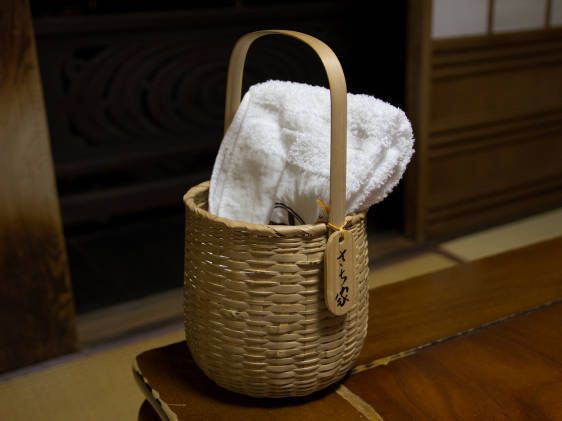
You can even use them to reserve tables. Of course, you don’t exclusively need a towel to take advantage of this unwritten rule, but any item you place on a table—be it a bag, phone, laptop, hat, or just about anything in your pocket—signals that the table has been taken.
Personally, I wouldn’t recommend leaving any valuables lying around like this, but everyday people in Japan do this, confident that their property will be there when they return. Even if you don’t take advantage of this rule, it’s good to know, because if you see a lone table with no end in sight with a bag or a phone resting on it, you don’t need to assume that it’s lost property and try to return it to the shop or police station. Just leave it be.
